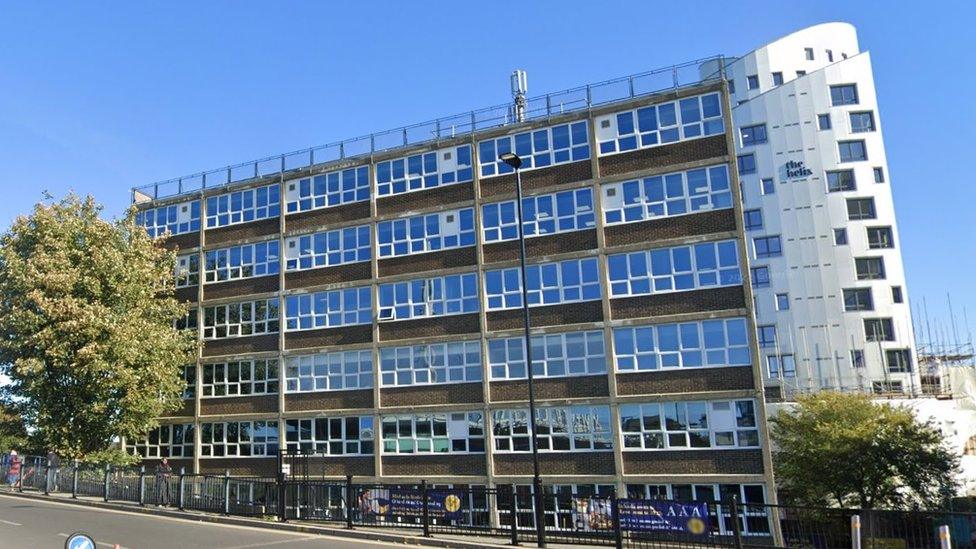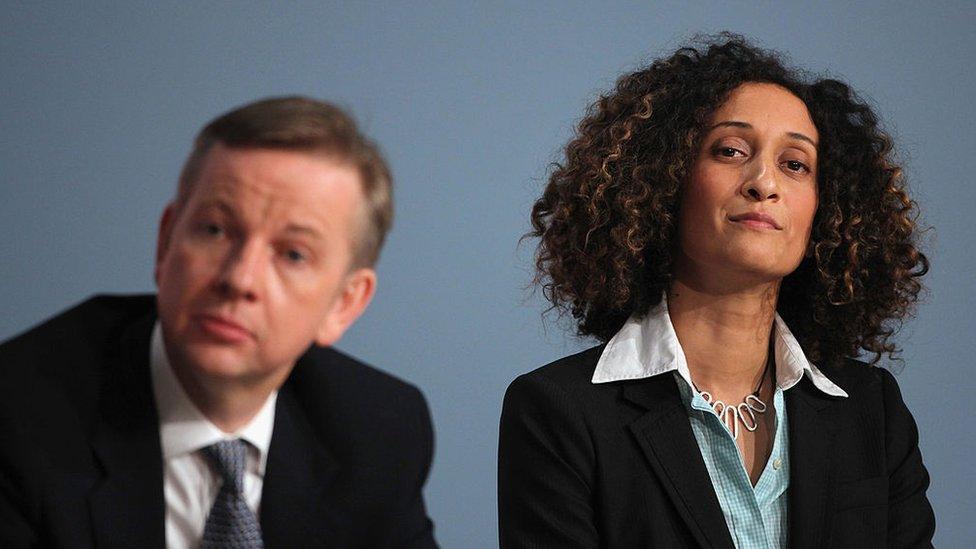Michaela School: Reversing prayer ban would expose school to risk, High Court hears
- Published

A student claims the decision to "ban prayer rituals" at the school breached her right to freedom of religion
Reversing a school's "emergency" decision to ban prayer rituals would again expose it to "an unacceptable risk of threats", the High Court was told.
Michaela School in Brent, north London, was challenged over a policy allegedly amounting to a "prayer ban".
The school told the court allowing prayer rituals risks "undermining inclusion" between pupils.
A Muslim student at the school said the policy was discriminatory.
The pupil, who cannot be named for legal reasons, alleges the school's stance on prayer was "the kind of discrimination which makes religious minorities feel alienated from society", a judge was told.
Her lawyers said she was making a "modest" request to be allowed to pray for about five minutes at lunch time, on dates when faith rules required it, but not during lessons.
But the school's lawyers claimed its policy was "justified" and "proportionate" after it faced death and bomb threats linked to religious observance on site.

The school's headteacher, Katherine Birbalsingh, was a government social mobility tsar
In March 2023, up to 30 students began praying in the school's yard, using blazers to kneel on, a judge heard.
It took action on prayer rituals due to concerns about a "culture shift" towards "segregation between religious groups and intimidation within the group of Muslim pupils", the court heard.
The court was told that Katherine Birbalsingh, a former government social mobility tsar, first introduced the policy in March last year, with it being backed by the governing body in May.
Jason Coppel KC, representing the Michaela School Community Trust, told the court the headteacher acted in an "emergency situation" and that returning to a policy of allowing prayer rituals would create "unacceptable" risks.
Mr Coppel said that during March 2023 "Muslim children were observed to be applying peer pressure to other Muslim children to act in certain ways".
One student who had never previously worn a headscarf was "pressured into wearing one", while a Muslim pupil dropped out of the school's choir as she was told it was "haram", or forbidden, the court heard.
The impact on Muslim pupils was "fully appreciated", the lawyer said, adding the school "expressly considered equalities implications".
Miriam Benitez, representing Brent Council, said in written arguments it continued "to remain neutral" over the legal dispute and attended the hearing as an "interested observer".
The hearing before Mr Justice Linden has now ended. A ruling is expected "as quickly as possible" at a later date.

Follow BBC London on Facebook, external, Twitter , externaland Instagram, external. Send your story ideas to hellobbclondon@bbc.co.uk, external
Related topics
- Published16 January 2024
